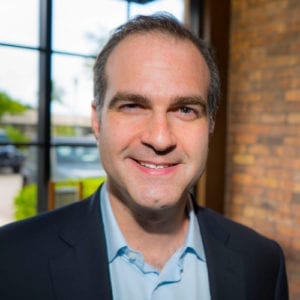I held a series of interview with some of today’s most accomplished Founder-CEOs who are redefining the concept of customer excellence for the future.
They better meet the expectations of the new generations, who react far more quickly to how they’re treated. With them, one wrong move creates a “paper cut” that can forever highlight your mistakes — across social media. But maintaining customer excellence starts with the environment and culture the leaders create for their people.
These leaders all have winning approaches to stategic customer relations – which show that customer success is about far more than just the customer. Here are their four key strategies:
Happy Employees Make Happy Customers
Kingston Technology is the world’s largest independent manufacturer of memory products with 3,000-plus employees worldwide. It’s been listed on Fortune’s “Best Companies to Work for in America.” Founders John Tu and David Sun built a culture of respect, loyalty, flexibility, and integrity, including a substantial investment in employees: the belief is that if they take care of their people, their people will look after others inside and outside the organization. “The business will follow,” Tu said.
Be a Rebel and an Evangelist
Big River Steels sees itself as a tech company that happens to make steel, a mindset forged by the founding CEO John Correnti that carries through today with CEO Dave Stickler. According to Mark Bula, the former CCO, Big River’s culture begins with people at the top who truly believe in empowering its workforce and thinking beyond the status quo. The company defines itself as “reimagining what it means to be a steel company in the global marketplace.” Bula believes leaders need to create an environment in which workers feel they can grow as individuals as well. “The way to get people excited about it was to get them to understand, we’re going to do something completely different,” he said. The leadership eats with employees, interacts with them daily, and drives the message that they are not making a commodity grade of steel, and their employees are not a commodity grade of employer either. “You’re here because we need people to be rebels, because we need people to create a rebel brand.”
Give Your Players What It Takes to Be Highly Productive
Jerry Colangelo, former owner of the Phoenix Suns is a repeat “Sportsman of the Year” and influential NBA coach who has done it all. Raised in the humble “lunch box community” of South Chicago he saw college and pro sports as a place to level the playing field. Unafraid to fail and unintimidated by competitors, he built game strategies on calculated risk. He created the Phoenix Suns as a family-based culture of relationships, trust, and loyalty, and knew that great players would inspire far better loyalty from the fans who are the team’s community. Following a poor start to an Arizona Diamondbacks’ season, he quickly improved the team’s talent, a move that showed his respect for the team’s community. He made a series of high-prestige appointments and accountabilities, built cultures where players would cherish the team or country they represented, and repeatedly focused on hiring the right people to make winning teams. Money was never the issue when recruiting, but his players and staff understood he expected their total commitment to teamwork.
Provide Customers with “Fanatical Support”
Morris Miller, co-founder of Rackspace and CEO of Xenex Disinfection Systems, builds unorthodox customer-centric organizations. At Rackspace, he recruited people who could deliver fanatical customer support, and reconfigured organizational silos to put a member of each functional area on customer serving teams. The result: more integrated and efficient service that shortened the distance between Rackspace and customers. At Xenex, he put machines and employees in locations until they were convinced of the product’s life-saving potential — and could bring the Xenex skillset and expertise into hospitals with hard-to-move professional forces. His problem was to solve their problems — turning Xenex experts into co-workers on location. Despite the growing dominance of technology today, he bets future business success will hinge on who can provide human support.
Founder-inspired customer service strategies will secure customer loyalty far beyond 2019. In the cases of all the organizations I studied and the leaders I interviewed, the leaders’ commitment to employees — in terms of behavior and investment — is what drove business success. That success continues to reflect the values of the founders. Change those leadership behaviors, and you risk future customer losses. But as these leaders noted, if you help a customer succeed as much as you would for yourself, you will always win.




































